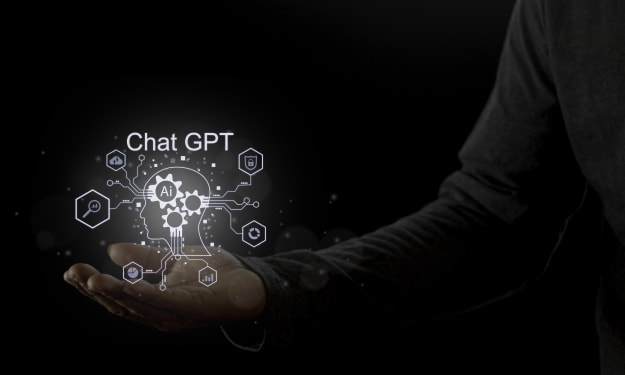
Regarding Chat-GPT and AI, everyone has an opinion. Engineers and businesspeople view it as a new frontier—a brave new world where they can create new goods, services, and solutions. Journalists and social scientists are concerned; prominent NYT author Ezra Klein has referred to it as a "information warfare machine.
" What has God accomplished? Just to be clear, I think there are a lot of possibilities here. Additionally, we are still unable to fully predict the effects of new technologies. There will be issues and failures, but "hooray" will be the ending.
What Is Chat-GPT?
Simply put, this technology, along with many others like it, is a "language machine" that indexes words, phrases, and sentences using statistics, reinforcement learning, and supervised learning. Although it lacks true "intelligence" (it doesn't know what a word "means," but it does know how it is used), it is incredibly proficient at answering questions, summarising data, and writing articles.
Chat-GPT and similar engines are "trained" (programmed and reinforced) to mimic writing idioms, steer clear of particular conversational tenors, and gain knowledge from your inquiries. In other words, the more sophisticated models can adapt their responses as you continue to ask questions and then store what they have discovered for future use. The level of performance in GPT-3.5 (the most recent version), despite the fact that this concept is not new (we've had chatbots for a decade, including Siri, Alexa, Olivia, and more), is astounding.
It responded fairly well when I questioned it about things like "what are the best practises for recruiting" or "how do you build a corporate training programme." Although the answers were somewhat inaccurate and quite simple, they will undoubtedly improve with practise. It also has a tonne of other abilities. It can also write code (Satya Nadella predicts that 80% of code will be automatically generated), news articles, information summaries, and more.
For example, it can answer the historical question of who was the US president in 1956. A GPT-3 derivative is being used by one of the vendors I spoke with last week to generate quizzes from courses automatically and act as a "virtual teaching assistant." I've now reached the potential use cases for this.
How Can Chat-GPT and Similar Technologies Be Used?
Let me first discuss why I think this will be such a big deal before I discuss the market. The corpus (database) of information that these systems index serves as their "teaching and learning environment." The GPT-3 system can respond to inquiries about almost anything because it was trained using the internet and some highly validated data sets.
As a result, it's somewhat "stupid" since "the internet" is a mishmash of advertising, self-promotion, news, and opinion. Sincerely, I believe that we all struggle with determining what is real (try looking up health information on your most recent illness; you'll be horrified by what you discover).
The Google rival to GPT-3, which is rumoured to be called Sparrow, was designed from the ground up with "ethical rules" in mind. My sources claim that it contains concepts like "don't give medical advice," "don't discuss race or discrimination," and "don't give financial advice.
" I'm not sure if GPT-3 possesses this level of "ethics," but you can bet that Microsoft, one of OpenAI's biggest partners, and this company are working on it (announcement here). So, while "conversation and language" are important, some extremely intelligent people—I won't name names—are actually kind of jerks.
Therefore, in order for chatbots like Chat-GPT to truly develop industrial strength intelligence, they require sophisticated, deep content. If you're using the chatbot to overcome writer's block, it's okay if it functions "pretty well."
However, in order for it to function consistently, it must source accurate, in-depth, and broad domain data. Elon Musk's overhyped automatic driving software might serve as an example. Personally, I don't want to drive or even travel in a group of 99% safe vehicles.
Not even 99.9% safety will do. Similarly, this could be a "disinformation machine" if the information corpus is inaccurate and the algorithms aren't "constantly checking for reliability." And one of the most experienced AI engineers I know informed me that Chat-GPT will almost certainly be biassed due to the volume of data it tends to consume.
Imagine, for instance, if the Russians created a chatbot about "United States Government Policy" using GPT-3 and directed it to every website ever created that promotes conspiracy theories. My impression is that this wouldn't be too difficult, and if they adorned it with an American flag, lots of people would use it.
The information's source is crucial. Since AI engineers are well aware of this, they hold the view that "more data is better." As long as the data set grows, according to Sam Altman, CEO of OpenAI, these systems will "learn" from inaccurate data. I can see why that would be the case, but I tend to think otherwise.
I think that directing this system towards streamlined, more manageable, validated, deep databases that we trust will be one of OpenAI's most beneficial business applications. (Since Microsoft is a significant investor, we must assume that its own Ethical Framework for AI will be upheld.) The most impressive solutions I've seen in demos over the years are those that concentrate on a single domain.
Olivia, an AI chatbot created by Paradox, has the intelligence to effectively screen, interview, and hire a McDonald's employee.
A vendor created a chatbot that functions as a "chief compliance officer" for banks, and it does a great job. Imagine if we created an AI that pointed to all of our HR research and professional development, as I discuss in the podcast. It might even be smarter than me and would be a "virtual Josh Bersin." (We are currently beginning to prototype this.) A system that automatically generated quizzes, a virtual teaching assistant, course outlines, and even learning objectives from pre-existing software engineering and data science course materials was demonstrated to me last week.
The work of instructional designers and subject matter experts typically requires a lot of mental effort.
If we "point" the AI in the direction of our content, we suddenly make it widely available. Additionally, we, as experts or designers, can train it invisibly. Recruiting, onboarding, sales training, manufacturing training, compliance training, leadership development, and even personal and professional coaching are just a few of the numerous applications in business.
The "expertise delivery" problem can be effectively solved by AI if you concentrate it on a reliable source of content (which most businesses have in abundance).
Where Will This Market Go?
The innovators of any new technology frequently receive arrows in the back. Therefore, even though Chat-GPT seems miraculous, we must assume that innovators will quickly advance, extend, and refine it. There will be a lot of competition because, as far as I can tell, the majority of VC firms are currently providing startups in this field with blank checks.
My gut feeling is that major vendors will "bulk up" on AI and machine learning expertise because companies like OpenAI and Microsoft will likely compete with many other players (Google, Oracle, Salesforce, ServiceNow, Workday, etc.). Thousands of entrepreneurs will use Azure to develop new products, inventive solutions, and domain-specific offerings if Microsoft incorporates OpenAI APIs into it.
However, it's still too early to tell, and I predict that solutions tailored to particular industries and domains will prevail. Consider all the "opportunity spaces" that are available.
The list includes customer service, technical training, psychological counselling, leadership development, and fitness coaching. And because of this, I still think the opportunity is "enormous" as long as this market is still around.
(I recently attempted to contact PayPal for assistance via their chatbot and became so frustrated that I shut down my account.) This technology reminds me of "mobile computing" in its early stages. We initially viewed it as an "add-on" to our internal corporate systems. It then developed, grew, and matured.
And the majority of modern digital systems are built for mobile first, with entire tech stacks centred on it, and we study consumer behaviour, markets, and phone usage. Here, the same thing will take place. Imagine having access to all the inquiries your clients make regarding your offerings.
The opportunity is simply incredible. And many jobs will change, as I discuss in the podcast. I've just conducted an analysis of all the jobs that Chat-GPT will directly affect (editors, reporters, analysts, customer service representatives, QA engineers, etc.),
and I've discovered that, of the approximately 10.3 million open jobs today, about 8% (800,000) will be affected right away. These jobs won't disappear, but over time, these systems will help to improve and update them. (And many new positions, such as "Chatbot trainer," are currently being created.)
I invite you to join us as a Josh Bersin Academy or Corporate Member so that we can talk about this topic in greater detail. Additionally, if you have your own experience or are building something cool, please share it with us. Moving forward, let's consider this as one of the brightest stars in our future and work to keep it under control.
About the Creator
Elle
I love to write and share my stories with others! Writing is what gives me peace.






Comments
There are no comments for this story
Be the first to respond and start the conversation.